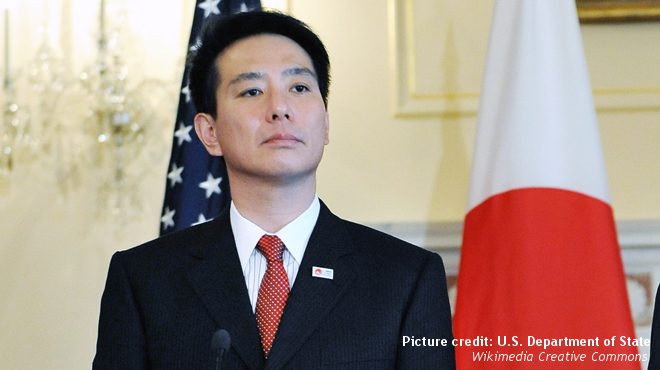Uphill Battle for Maehara’s Democratic Party

On September 1, Japan’s opposition Democratic Party (DP) held a leadership election pitting former Minister of Foreign Affairs Seiji Maehara against former Chief Cabinet Secretary Yukio Edano.
Although Maehara won, setbacks in the first weeks along with long-term challenges on politics and on policy indicate that much more than a new leader is likely needed if the DP to hope for a comeback. Moreover, recent indications that Japan may soon have a new general election will further complicate matters for the DP.
Renhō out
The leadership election was necessitated by the exit of former leader Renhō Murata, popularly called Renhō. Renhō was at the time of her election seen as a charismatic new type of leader, described by the Financial Times as heralding, “cultural change” in Japan.
However, she led the party for less than a year and her exit marks the fourth leadership change since the party’s predecessor the Democratic Party of Japan (DPJ) was ousted from power by Abe in 2012.
Her decision to step down came a month after a poor showing by the DP in Tokyo assembly elections that also decimated its traditional rival the LDP and elevated the governor of Tokyo’s regional party Tomin First no kai (Tomin First).
Regardless, the passing of the baton to Maehara – a former DPJ leader – will most likely not herald a rebirth of the DP. The DP not only had a new charismatic female leader a year ago, formally it was a new party in itself. Since it was launched in March 2016 it has never provided much of a forceful opposition to the Abe government.
Problems from the very start
The DP’s new leader hit a road block in the very first days of his tenure when Shiori Yamao, his candidate for Secretary General – the 2IC of the party – had to be withdrawn only two days after being announced.
The weekly magazine, Shukan Bunshun reported that the married Yamao had been having an affair. Maehara offered her another party post but then decided to drop her altogether. Shortly after, Yamao announced that she would leave the DP. She denied the allegations, but explained that she would leave the DP so as not to damage the party.
Across the board the DP is suffering from high-profile defections and threats of defection. Notable among these was the exit in August of former environment minister and former leadership candidate Gōshi Hosono, who “principally opposed” a continued electoral partnership with the Japan Communist Party (JCP).
This electoral partnership which has been in effect since Renhō’s tenure was a point of contention in the leadership election, with Maehara opposing a continuation of it. Some Hosono-friendly DP parliamentarians are reportedly also considering leaving the party, with one announcing his decision on September 13, and another two the next day.
Considering these developments, it is puzzling how Yamao leaving – even if she is considered a burden – would help the party.
Beyond the very start – general election looming?
These issues aside, there remains the fundamental problem of how the DP can credibly challenge the incumbent government.
The first test of Maehara DP’s will come on October 22, when three by-elections will be held for the lower house of the National Diet. Maehara seems to be hoping that the JCP, the second largest opposition party, will decide not to field candidates against the DP, in order to coalesce the opposition vote around one candidate.
He has also, however, signaled a “reevaluation” of the agreement according to which the opposition parties cooperate electorally. The JCP has been reported as saying that for them to not field candidates against the DP, a formal cooperation of the sort that Maehara rejects is needed.
The chairman of the LDP’s General Council has hinted that a win for the LDP in all three by-elections might be enough for the government to decide that it has momentum, and to call the next general election.
In a scenario when the LDP then wins again, it is likely that Maehara would be forced out as DP leader perhaps within the year, or in early 2018. It now looks like Abe will call an election to be held potentially on October 22 or 29. This would strongly increase the pressure on Maehara and the DP.
Seiji Maehara might represent a break from the previous confrontational approach of the opposition. If he manages to craft an image of a DP that is working towards a policy, that will be a step forward.
These first few weeks however, do not instill much hope in the party. Perhaps this leadership shift will only serve to embolden Abe to try his luck in an early general election, an outcome that is likely to be detrimental to the DP.